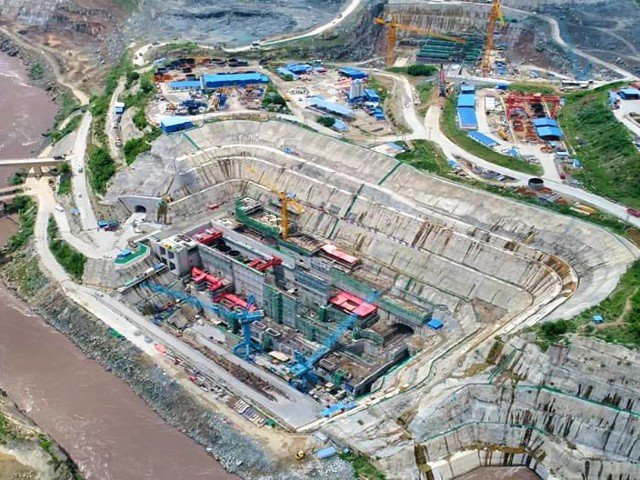China Pakistan Economic Corridor (CPEC) Authority Chairman Lt Gen (retd) Asim Saleem Bajwa on Wednesday said that the 88 per cent work on 720-megawatt Karot Hydropower Project — CPEC's first hydropower project — has been completed.
Located on the Jhelum River on the boundary between Punjab and Azad Kashmir, the project is expected to be completed by April 2022, Bajwa wrote on his official Twitter handle.
He said that the investment in the project amounted to $1,780 million whereas 5,000 local people were directly employed in the construction.The project was earlier expected to be completed in 2021 and will generate 3.2 billion units of cheap, clean electricity for Pakistan.
In September 2018, the plant finished a river closure and entered into the comprehensive construction phase. It aims to annually meet the electricity needs of about 2 million local households and deliver about $20 million in taxation.
The China Three Gorges South Asia Investment Ltd (CSAIL) is the lead sponsor in the three hydropower projects in Pakistan namely 1,124MW Kohala Hydropower Project, 720MW Karot Hydropower Project and 640MW Mahl Hydropower Project.
Last month, China's official state-run press agency Xinhua reported that Pakistan's Suki Kinari (SK) Hydropower Project in the northwestern part of the country achieved the second-stage river closure.
The successful cut of the Kunhar River's main riverbed with the river being diverted to spillway is to create free-from-water working areas for construction of the concrete dam of the power station under CPEC, located in the Mansehra district of Khyber-Pakhtunkhwa.
Calling the closure a key milestone of the 884-megawatt hydropower project, Jia Ancheng, general manager of China Gezhouba Group Overseas Investment Co., Ltd., a subsidiary of the China Gezhouba Group Corporation which invests in and implements the project, attributed the achievement to the joint and hard efforts made by the Chinese and Pakistani constructors despite Covid-19.
Once getting functional, the project will annually generate some 3.21 billion kilowatt-hours of clean electricity, replacing 1.28 million tons of coal and reducing 2.52 million tons of carbon dioxide emissions per year, according to Huang Senlin, Quality, Health, Safety and Environment Management (QHSE) Director of the project.
Earlier this month, the CPEC Authority chairman had said that the western alignment routes of the CPEC will be completed in around three years while the country is entering the second phase of CPEC that primarily focuses on agriculture and mass industrialisation.
Speaking to businessmen at the Karachi Chamber of Commerce and Industry (KCCI), he said that work on the western alignment was underway on the route from Islamabad to Dera Ismail Khan and from Dera Ismail Khan to Zhob.
“We have presented a roadmap to China and they have approved it,” he said, adding that work had also started on the Zhob-Quetta route.
It is pertinent to mention that all routes of the western alignment go through remote areas where the poverty rate is higher, jobs are less and industrial development and infrastructure is very low, thus completion of these projects will usher in prosperity in these areas, he said.
The chairman shared that in the second phase of CPEC, “we are moving beyond infrastructure to focus on agriculture, particularly economic zones to boost industrialisation".
































